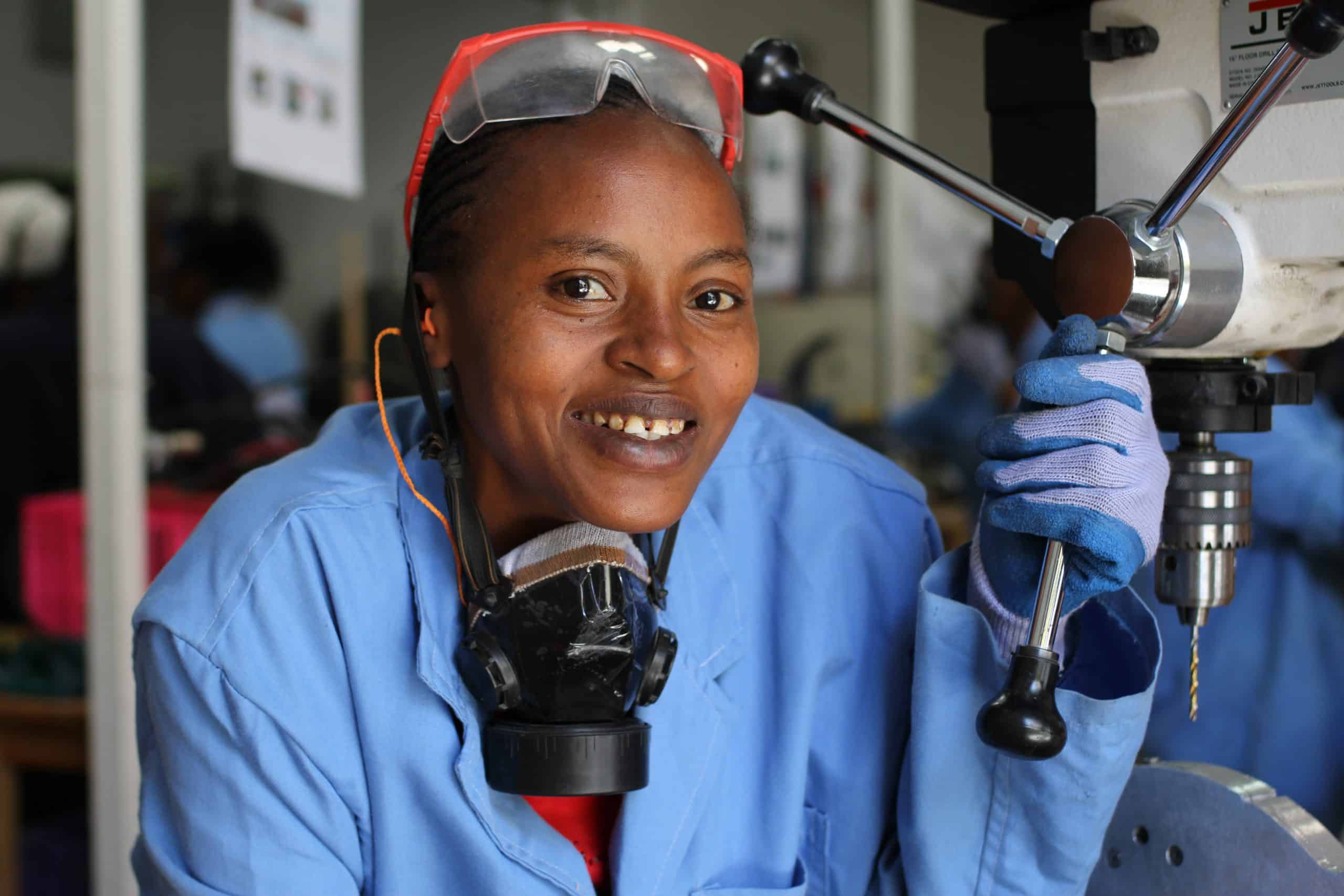Among the many pathways to a low carbon world, one track is too little trodden: training up a generation of young people with the skills for clean energy. Every time someone learns how to fix a solar panel or assemble a cookstove, we are one step closer to the future we want. What’s more, we are one step closer to tackling a scandalous global failure – that almost one billion go without access to electricity, and three times as many go without safe cooking fuels.
The opportunities ahead are enormous. By 2023 the decentralised renewable energy sector could provide 210,000 direct, informal jobs in India, 30,000 in Kenya, and 24,000 in Nigeria, Power for All reports. But only if countries develop the workforce to fuel this energy revolution.
The benefits of widening green skills go far beyond lowering emissions. Initiatives can also support a just transition, by retraining workers in polluting fossil fuel industries or creating employment in countries with fast-growing youth populations.
So as well as tackling climate change, investment and smart policymaking can deliver huge social and economic benefits – including progress towards gender equality, if efforts are made to reach out to women.
Ambition and impact: trailblazing work in Togo, Kenya and India
In Africa, pioneering governments are taking on the energy access challenge with bold national plans – including action on skills training.
Among the frontrunners is the Togolese Rural Electrification Agency, which aims to achieve universal energy access in the country by 2030 – an ambitious target, given that in 2017 access was just 8% in rural areas. The agency’s systemic approach takes in subsidies, clever integration with mobile banking, public-private partnerships – and a clear focus on building skills.
In recent years, 3,000 local technicians have been trained and certified to install, maintain and fix solar systems. Meanwhile, 3,000 people have been trained and certified as mobile banking agents – essential to the successful roll out of solar solutions.

Technicians are trained in five solar academies across the country, established by the KYA-Energy Group. The company’s CEO Ketowoglo Yao Azoumah predicts that solar skills could soon become a handy export business for Togo – with technicians and local companies finding employment in neighbouring countries across West Africa.
As women face barriers to entering science, engineering and technology sectors, the agency ensured that half of the engineers delivering the work are women.
When it comes to green skills, government action essential – but politicians must work in partnership with forward thinking enterprises and NGOs, that ensure training specifically tackles social inequality. Here are again, there are shining lights to show us the way forward, bringing energy access and workplace opportunities for women.
Kenya’s Burn Manufacturing produce affordable cookstoves that slash carbon emissions and protect the health of families that use them. 60% of their employees are female, and have often broken social barriers to train in jobs normally the preserve of men. This dynamic workforce has pushed the company to become a market leader – just a few weeks ago, Burn sold their millionth stove.
Training for green jobs can also spread powerful digital skills. Frontier Markets’ Solar Sahelis are rural women entrepreneurs selling clean energy goods and other products in their communities. An e-commerce app is now central to the organisation’s business model, bringing the sahelis new tech skills to complement their formidable community knowledge and sales abilities.
Huge barriers remain
While these success stories are worth celebrating, they are the exception rather than the rule. In recent years the International Renewable Energy Agency has identified a global need for better public-private partnerships, and action to remedy huge inequalities in access to training and employment among low-income communities and other marginalised groups, especially women. The organisation also calls for national green skills policies, efforts to map training needs, and new channels to connect employers with potential employees.
These concerns have spurred the launch of the 2021 Ashden Award for Energy Access Skills. We are on the hunt for outstanding examples of inclusive and barrier-breaking skills development. The winner will receive a £20,000 grant, while all finalists are given marketing and business support, and access to Ashden’s network of funders, investors and expert partners. Ashden will also fund a powerful promotional film about the winner’s work. Entry is free, and applications close on 17 March 2021.
This week jobs and training are on the agenda at the timely Sustainable Energy for All Youth Summit. Green skills are relevant to every age group, but of particular concern for young people, who have done so much for all of us by raising their voices in support of climate action. Now we can support them by ensuring energy access skills are available to all, and delivered as powerfully as possible.

